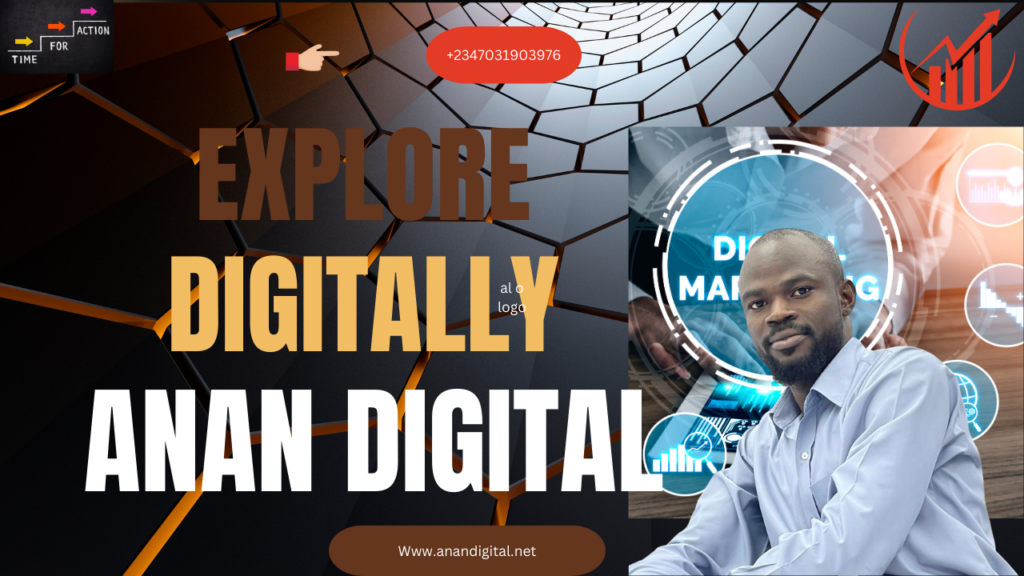Unleashing the Power of Digital Marketing: Strategies for Success

Digital marketing is a multifaceted approach that encompasses various online marketing strategies aimed at promoting products and services through digital channels. This form of marketing leverages the internet and electronic devices, making it a compelling tool for businesses in today’s competitive landscape. Key components of digital marketing include social media marketing, content marketing, email marketing, search engine optimization (SEO), and pay-per-click advertising, among others. These channels allow businesses to reach their target audiences effectively and efficiently.
Unlike traditional marketing methods, which often involve print ads, radio spots, and television commercials, digital marketing provides instantaneous feedback and the ability to measure the success of campaigns in real time. For example, social media platforms enable businesses to engage with their audience through posts, comments, and direct messages, fostering a two-way communication channel that traditional methods do not offer. Similarly, SEO efforts can enhance a website’s visibility, making it easier for potential customers to find the information they need.
The significance of digital marketing in the modern business landscape cannot be overstated. As consumers increasingly turn to the internet for information, businesses that embrace digital strategies can improve their visibility and accessibility. Moreover, personalized marketing tactics facilitated by digital channels enable brands to tailor their messages according to user preferences, leading to higher engagement rates. This segmentation and targeting capability also sets digital marketing apart from conventional marketing approaches, providing businesses with a more powerful toolset to connect with their customers.
In conclusion, the evolution of marketing into the digital realm represents a fundamental shift in how businesses interact with consumers. By effectively utilizing various digital marketing channels, companies can enhance their outreach and drive meaningful engagement with their target audiences.
Creating a Comprehensive Digital Marketing Strategy
In the rapidly evolving landscape of digital marketing, developing a comprehensive strategy is paramount for business success. The first step in crafting an effective digital marketing strategy involves accurately identifying the target audience. This process requires a thorough understanding of demographics, interests, and behaviors, which will inform the methods used to engage potential customers. Utilizing tools such as social media analytics and customer surveys can provide valuable insights into audience preferences.
Next, it is essential to set clear, measurable objectives that align with overarching business goals. These objectives should be SMART—Specific, Measurable, Achievable, Relevant, and Time-bound. By defining such objectives, businesses can establish a clear direction for their digital marketing efforts, making it easier to track progress and adjust strategies as necessary. Whether the goal is to increase brand awareness, generate leads, or boost sales, having well-defined targets is crucial for success.
Choosing the right digital channels is another critical element of a comprehensive strategy. Businesses must carefully analyze which platforms—such as social media, email marketing, and search engine optimization (SEO)—will best reach their target audience. Each channel has unique strengths that must be leveraged effectively, thus creating a cohesive online presence. It is also vital to maintain a consistent brand message across all platforms to ensure that the audience receive a unified experience.
Finally, measuring success through analytics is key to refining digital marketing efforts. Utilizing tools like Google Analytics can help businesses gauge the effectiveness of their campaigns, from website traffic to conversion rates. By interpreting this data, marketers can shift tactics, reallocate resources, and ultimately enhance their strategies for better alignment with business objectives.
Effective Digital Marketing Tools and Resources
To harness the full potential of digital marketing, leveraging the right tools and resources is paramount. A wide range of software solutions exists to streamline various aspects of digital marketing, from social media management to search engine optimization (SEO) and email marketing.
For social media management, tools such as Hootsuite and Buffer provide robust platforms for scheduling posts, analyzing engagement, and monitoring brand mentions across various networks. These tools enable marketers to manage multiple accounts simultaneously, saving time while enhancing their reach and effectiveness. With integrated analytics, they allow users to evaluate the performance of their content, ensuring that strategies can be adjusted for maximum impact.
Email marketing platforms like Mailchimp and Constant Contact offer features for crafting professional email campaigns, segmenting audiences, and tracking performance metrics. These platforms facilitate the creation of targeted messaging, which can significantly improve customer engagement and conversion rates. They also provide templates and automation features, allowing marketers to nurture leads without sacrificing personal touches.
Furthermore, SEO analysis tools such as SEMrush and Ahrefs are indispensable in optimizing website visibility. These tools help identify keyword opportunities, track keyword rankings, and analyze competitors, providing valuable insights to refine content strategies. Utilization of such tools ensures that digital marketing efforts are based on data-driven decisions, resulting in better ROI.
In addition to these tools, continuous learning is crucial in the fast-evolving landscape of digital marketing. Engaging in online courses, attending webinars, and following industry blogs are effective ways to stay updated with current trends and best practices. This commitment to learning not only enhances skill sets but also allows marketers to adopt innovative techniques that can propel their strategies forward. By utilizing effective tools and fostering an environment of continuous learning, businesses can achieve more successful digital marketing outcomes.
Case Studies: Success Stories in Digital Marketing
The landscape of digital marketing is constantly evolving, and numerous businesses have harnessed its potential to drive growth and innovation. One notable example is the case of a well-known athletic apparel brand, whose strategic pivot to digital marketing resulted in substantial revenue growth. Faced with increasing competition in the retail sector, the company identified digital channels as a means to enhance customer engagement. By investing in social media advertising, search engine optimization (SEO), and influencer partnerships, the brand successfully amplified its online presence, ultimately leading to a 30% increase in online sales within one fiscal year.
Another illustrative case is that of a mid-sized travel agency that faced declining foot traffic and revenue due to the rise of online travel booking platforms. The agency transitioned to a comprehensive digital marketing strategy, focusing on content marketing and search engine marketing (SEM). By creating engaging travel blogs that addressed customer queries and highlighting unique destination experiences, the travel agency not only captured organic traffic but also built brand loyalty. Within six months, they observed a 50% increase in website visits and a marked improvement in customer inquiries, demonstrating the effectiveness of content-driven digital strategies.
Additionally, a local restaurant successfully leveraged email marketing to enhance customer retention during challenging economic times. By curating personalized email campaigns featuring exclusive offers and menu highlights, the restaurant was able to reconnect with past patrons and attract new clientele. As a result, the effective email campaign led to a 25% increase in customer visits over three months, highlighting the importance of a targeted approach in digital marketing. These real-world examples exemplify the power of innovative digital marketing tactics and underscore that with the right strategy, businesses can overcome challenges and achieve significant growth.

